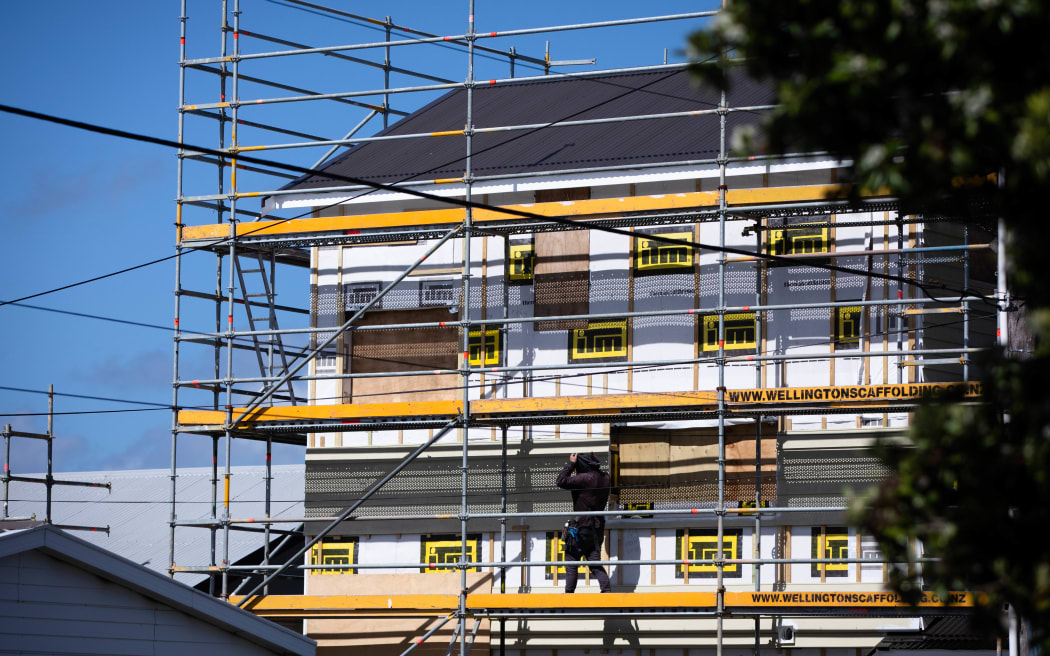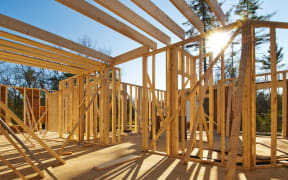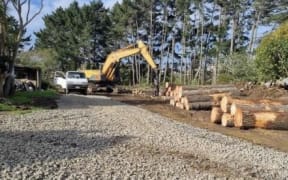The building consents system is "broken" and under-performing councils should face sanctions or even lose accreditation, says the Registered Master Builders Association.

An apartment building under construction in Wellington Photo: RNZ / Angus Dreaver
In July, the government announced it would be seeking feedback on the consents regime - on everything from the building design phase through to the issuing of a code compliance certificate - as part of reforms.
The Ministry of Business, Innovation and Employment (MBIE) has also released a discussion document, identifying what it sees as "four desirable outcomes" for the system as well as the issues.
Master Builders chief executive David Kelly said the association welcomed the review as an opportunity to fix a system hampered by "a risk-averse approach", inefficiencies, inconsistencies and underinvestment in technology, which were leading to "delays and high costs for homeowners and builders".
"With changes that focus on efficiency, consistency, risk-based approaches, innovation and competition, the consenting system can become an enabler of delivery and innovation rather than serve as a bottleneck."
In its submission to the review, Master Builders recommended a "rationalisation" of the country's 67 consenting authorities, developing consistent standards, and streamlining processes to recognise "lower-risk" builds and builders' own levels of expertise.
MBIE needed to exercise its regulatory powers to give councils less discretion in how they interpreted regulations and apply sanctions or remove accreditation if they did not meet statutory time-frames, Kelly said.
There was "unwillingness" in some councils to accept alternative materials during recent building supply shortages or rationalise processes to recognise some builds were less risky than others, the association said.
These costs and delays were perpetuating the housing crisis, Kelly said.
The association's recent state of the sector survey of builders and homeowners found 80 percent of respondents were affected by consenting delays, with 45 percent of builders waiting five weeks or more.
Furthermore, 60 percent of homeowners had been hit with cost increases of 11 to 20 percent as a result of consenting delays.
"New Zealanders can't wait three years for urgent changes to a system that has been broken for decades," Kelly said.
"While we are supportive of this review and don't want to see it rushed or hurried, this doesn't preclude the government from quick wins and implementing obvious solutions."
The review will not revisit the joint and several liability rule, nor consider the introduction of building consent authority liability costs, limitations on their duty of care, or a public building defects insurance scheme.
Minister of Building and Construction Megan Woods declined to comment on individual submissions, but welcomed the fact organisations and people were taking part in the consultation under way to improve the building consent system, a spokesperson said.
Consultation on the consents system closed on 4 September at 5pm.





